Английский язык для специальных и академических целей: Международные отношения и зарубежное регионоведение. Часть 1 - [14]
3. a feeling of anger or displeasure about someone or something unfair
4. to be more important or valuable than something else
5. difficult to believe and therefore unlikely to be true
6. something that you think is true although you have no definite proof
7. something that limits your freedom to do what you want
8. to prevent someone from having something, especially something that they need or should have
9. to cause pain, suffering, or trouble to someone, especially for a long period of time
10. lasting for only a short time, brief
11. to accept someone's opinions and try to do what they want, especially when their opinions or needs are different from yours
12. to let someone else have your position, power, or rights, especially unwillingly
1. fleeting: moment, ______________, ________________, _______________
2. plagued by: disease, ________________, ________________, ________________
3. implausible: theory, ________________, _________________, ________________
4. to deprive of: civil rights, ________________, _________________, _______________
5. to relinquish: control, _________________, _________________, _______________
6. political, ________________, _________________, _______________ constraints
1. Cambodia is now formally a democracy, but the country is _______________by corruption
and poverty.
2. Her Majesty the Queen paid a ______________visit to Heaton Chapel yesterday on her way
to opening the new Co-op building in Manchester.
3. We hear that his Lordship possesses no other powers _______________ the dispute be
tween Great Britain and the United States than those mentioned in the act of the British Parliament.
4. It is not entirely _______________that George Bernard Shaw's Henry Higgins could identify
a speaker's origins within a mile or two, or within a street or two in London.
Unit I. UK: from Empire to Democracy
Unit I. UK: from Empire to Democracy
5. A Tunisian court has ______________ th e party of deposed President Zine al-Abidine Ben Ali,
ousted on 14 January.
6. The Constitution placed no religious ______________ on the separate states, restrict
ing clearly and specifically the federal Congress from making law on or interfering with religion.
7. The benefits of isolated outdoor smoking areas ______________ the negative effects that this
kind of controlled smoking would have on the general student population.
8. A year later, South Korea fell into crisis with Asia's other former tiger economies. While Korea's
meltdown had myriad causes, it mostly boiled down to ___________________.
9. In the same year the Webster-Ashburton treaty between Great Britain and the United States
was concluded, but England did not thereby ________________ h e r claim of the right to
search American vessels.
10. Nearly all of the estimates of «harm» concerning Ed Snowden's actions were based on the
faulty _______________that he «took» (and revealed) every document he ever «touched»
while at NSA — somewhere around 1.7 million.
11. The PATRIOT Act violates the personal privacy of all American citizens. It has _____________
the citizens of this country of some of the basic rights that were promised to them in the Constitution.
12. Forcing young people to vote when they feel such a deep aversion to the political class may
actually serve to reinforce a deepening _______________, rather than to engage them in
a positive manner.
David Cameron's Statement on Independence Referendum Result http://www.youtube.com/watch?v=ana1J6t0ZlI
1. Do the constituent parts of the UK have similar rights?
2. What did the Scottish devolution of 1998 consist in?
3. Why did the Scotts hold an independence referendum in 2014?
1. When did the Scottish national party come to power?
2. Why didn't the British Parliament prevent Scotland from holding a referendum?
3. What is the significance of the referendum results?
4. What promises did the central government have to make to Scotland before the referendum?
5. How does this affect the other parts of the UK? What reforms are to be carried out?
Do you think the Scottish Independence Referendum proves that the British democracy is solid and resilient?
SPEAKING
READING 3
1. How many monarchies are there left in Europe?
2. Why do you think the British retain this form of government?
(From Acts of Union and Disunion by Linda Colley. Profile Books LTD, London 2014)
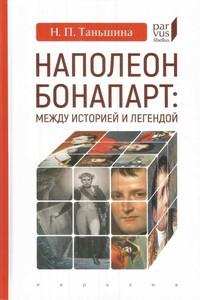
Наполеон притягивает и отталкивает, завораживает и вызывает неприятие, но никого не оставляет равнодушным. В 2019 году исполнилось 250 лет со дня рождения Наполеона Бонапарта, и его имя, уже при жизни превратившееся в легенду, стало не просто мифом, но национальным, точнее, интернациональным брендом, фирменным знаком. В свое время знаменитый писатель и поэт Виктор Гюго, отец которого был наполеоновским генералом, писал, что французы продолжают то показывать, то прятать Наполеона, не в силах прийти к окончательному мнению, и эти слова не потеряли своей актуальности и сегодня.
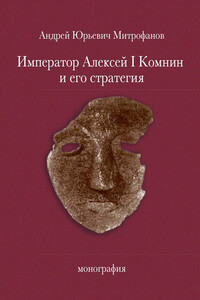
Монография доктора исторических наук Андрея Юрьевича Митрофанова рассматривает военно-политическую обстановку, сложившуюся вокруг византийской империи накануне захвата власти Алексеем Комнином в 1081 году, и исследует основные военные кампании этого императора, тактику и вооружение его армии. выводы относительно характера военно-политической стратегии Алексея Комнина автор делает, опираясь на известный памятник византийской исторической литературы – «Алексиаду» Анны Комниной, а также «Анналы» Иоанна Зонары, «Стратегикон» Катакалона Кекавмена, латинские и сельджукские исторические сочинения. В работе приводятся новые доказательства монгольского происхождения династии великих Сельджукидов и новые аргументы в пользу радикального изменения тактики варяжской гвардии в эпоху Алексея Комнина, рассматриваются процессы вестернизации византийской армии накануне Первого Крестового похода.
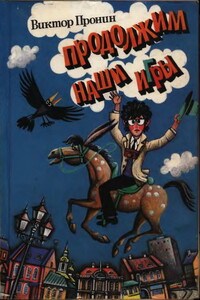
Виктор Пронин пишет о героях, которые решают острые нравственные проблемы. В конфликтных ситуациях им приходится делать выбор между добром и злом, отстаивать свои убеждения или изменять им — тогда человек неизбежно теряет многое.
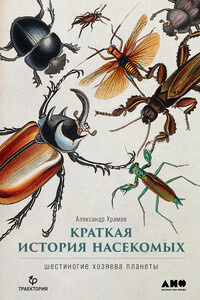
«Любая история, в том числе история развития жизни на Земле, – это замысловатое переплетение причин и следствий. Убери что-то одно, и все остальное изменится до неузнаваемости» – с этих слов и знаменитого примера с бабочкой из рассказа Рэя Брэдбери палеоэнтомолог Александр Храмов начинает свой удивительный рассказ о шестиногих хозяевах планеты. Мы отмахиваемся от мух и комаров, сражаемся с тараканами, обходим стороной муравейники, что уж говорить о вшах! Только не будь вшей, человек остался бы волосатым, как шимпанзе.
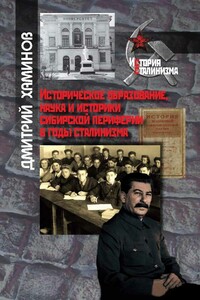
Настоящая монография посвящена изучению системы исторического образования и исторической науки в рамках сибирского научно-образовательного комплекса второй половины 1920-х – первой половины 1950-х гг. Период сталинизма в истории нашей страны характеризуется определенной дихотомией. С одной стороны, это время диктатуры коммунистической партии во всех сферах жизни советского общества, политических репрессий и идеологических кампаний. С другой стороны, именно в эти годы были заложены базовые институциональные основы развития исторического образования, исторической науки, принципов взаимоотношения исторического сообщества с государством, которые определили это развитие на десятилетия вперед, в том числе сохранившись во многих чертах и до сегодняшнего времени.
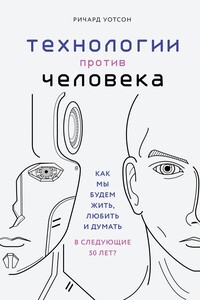
Эксперты пророчат, что следующие 50 лет будут определяться взаимоотношениями людей и технологий. Грядущие изобретения, несомненно, изменят нашу жизнь, вопрос состоит в том, до какой степени? Чего мы ждем от новых технологий и что хотим получить с их помощью? Как они изменят сферу медиа, экономику, здравоохранение, образование и нашу повседневную жизнь в целом? Ричард Уотсон призывает задуматься о современном обществе и представить, какой мир мы хотим создать в будущем. Он доступно и интересно исследует возможное влияние технологий на все сферы нашей жизни.